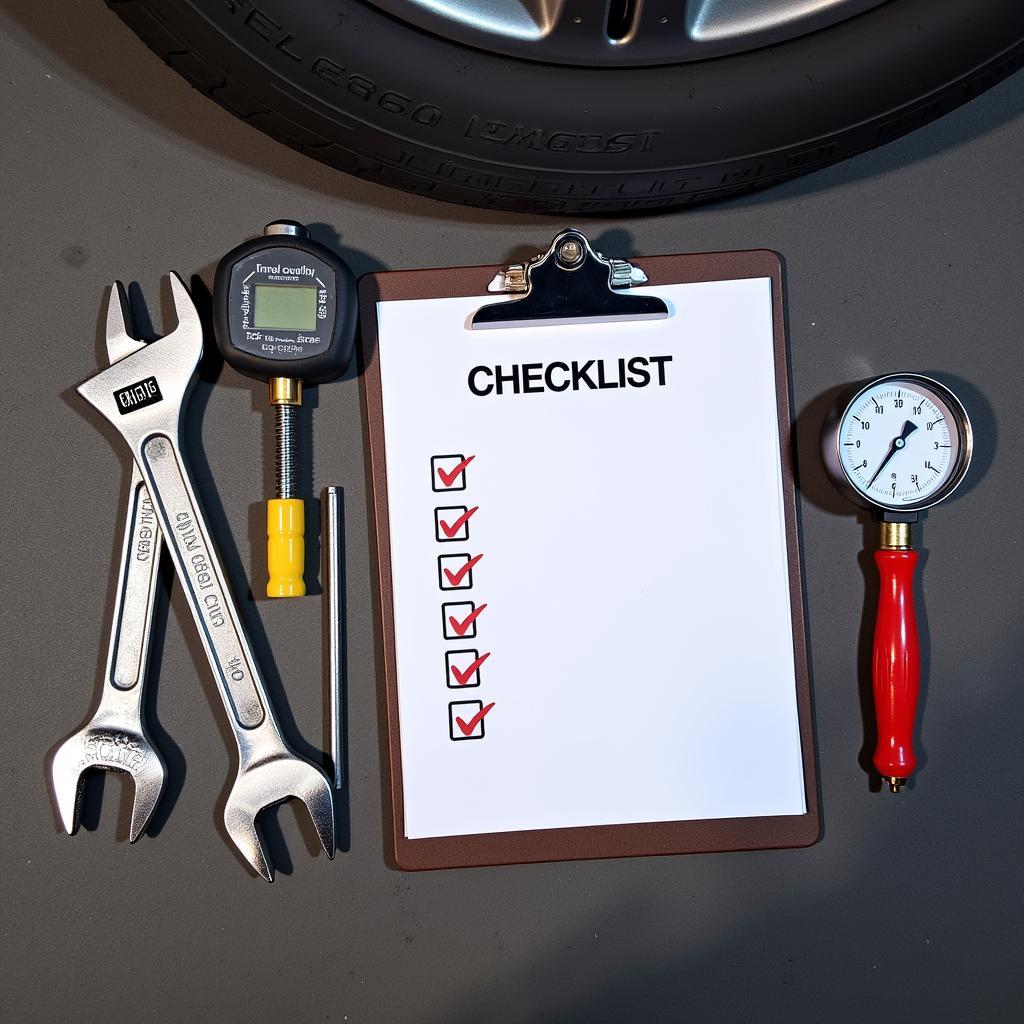The Problem With Producing Hybrid Cars is multifaceted, impacting both manufacturers and consumers. While hybrids offer a bridge between traditional combustion engines and fully electric vehicles, several key challenges hinder their widespread adoption and smooth production. From sourcing raw materials to navigating complex supply chains and managing consumer perceptions, the hybrid car industry faces a unique set of hurdles. Let’s delve into the complexities of this evolving automotive landscape.
problems with buying a car with salvage title
The High Cost of Hybrid Car Production
One of the most significant problems with producing hybrid cars is the cost. Hybrids require two distinct powertrains – an internal combustion engine and an electric motor – leading to higher manufacturing costs compared to conventional vehicles. This dual system necessitates more complex components, including batteries, electric motors, and power electronics, which contribute significantly to the overall price tag. The sophisticated technology involved also demands specialized manufacturing processes and skilled labor, further escalating production expenses.
Supply Chain Complexities and Material Sourcing for Hybrids
The intricate supply chain required for hybrid car production presents another major challenge. Sourcing raw materials for batteries, such as lithium, cobalt, and nickel, is often fraught with ethical and logistical complexities. These materials are frequently mined in regions with questionable labor practices or unstable political climates, creating supply chain vulnerabilities. Furthermore, the increasing demand for these resources, driven by the growth of the electric vehicle market, has led to price volatility and supply shortages, impacting the production of hybrid cars.
Consumer Perception and Market Demand Fluctuations
Consumer perception also plays a significant role in the challenges surrounding hybrid car production. While some consumers embrace the fuel efficiency and reduced emissions of hybrids, others remain skeptical about their performance, range, and long-term reliability. This uncertainty, coupled with the often higher initial purchase price, can lead to fluctuating market demand, making it difficult for manufacturers to accurately forecast production volumes and optimize their investments.
problems with buying salvage title cars
The Problem with Producing Hybrid Cars: Battery Technology Limitations
Battery technology, while constantly evolving, still presents limitations for hybrid vehicle production. Current battery technology has limitations in terms of energy density, lifespan, and charging time. These factors directly impact the overall performance and practicality of hybrid cars, influencing consumer adoption rates. Furthermore, the environmental impact of battery production and disposal remains a concern, requiring ongoing research and development into more sustainable battery solutions.
Navigating Government Regulations and Emission Standards
The ever-evolving landscape of government regulations and emission standards adds another layer of complexity to hybrid car production. Manufacturers must constantly adapt their designs and production processes to comply with new regulations, which can be costly and time-consuming. Furthermore, differing regulations across various markets create logistical challenges for global manufacturers, requiring them to tailor their products to specific regional requirements.
What are the environmental impacts of hybrid car battery production?
While hybrid cars offer environmental benefits compared to traditional gasoline vehicles, the production of their batteries does have an environmental footprint, primarily due to the mining and processing of raw materials like lithium and cobalt.
problems with a salvage title car california
How does the cost of a hybrid car compare to a conventional gasoline car?
Generally, hybrid cars have a higher initial purchase price compared to comparable gasoline-powered vehicles. However, the long-term cost of ownership can be lower due to fuel savings and potential tax incentives.
car has 2 vins is that a problem
Are there any performance differences between hybrid cars and gasoline cars?
While some hybrid models may have slightly reduced performance compared to their gasoline counterparts, many modern hybrids offer comparable or even superior acceleration and handling.
“The transition to hybrid and electric vehicles necessitates a paradigm shift in the automotive industry, demanding innovative solutions to overcome production challenges and meet evolving consumer expectations.” – Dr. Eleanor Vance, Automotive Engineering Specialist.
trading in a car with problems
Conclusion
The problem with producing hybrid cars encompasses a range of complex issues, from material sourcing and supply chain complexities to consumer perception and evolving technology. As the automotive industry continues its transition towards more sustainable transportation solutions, addressing these challenges is crucial for the successful integration of hybrid vehicles into the mainstream market. Connect with AutoTipPro at +1 (641) 206-8880 or visit our office at 500 N St Mary’s St, San Antonio, TX 78205, United States, for further assistance and expert advice.
“Overcoming the challenges associated with hybrid car production requires a collaborative effort between manufacturers, policymakers, and researchers to drive innovation and ensure a sustainable future for the automotive industry.” – David Miller, Automotive Supply Chain Analyst.






Leave a Reply